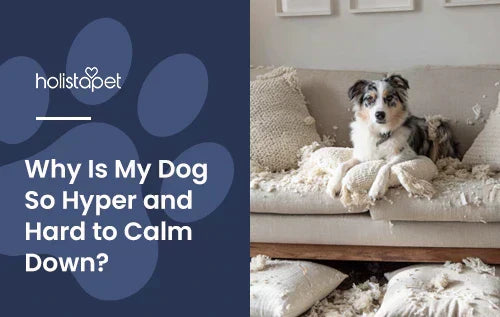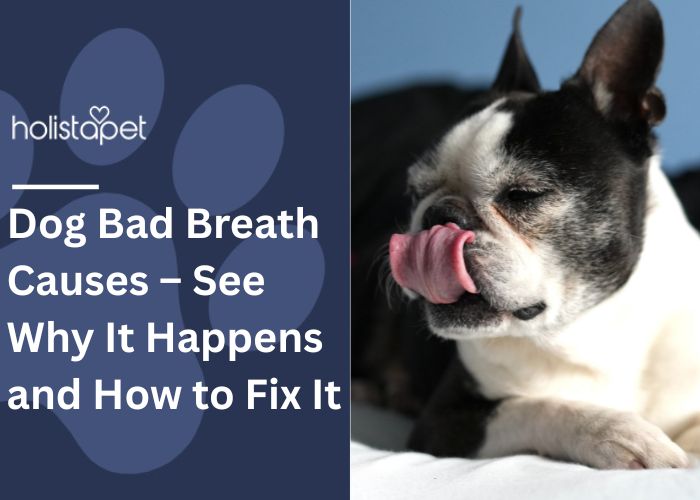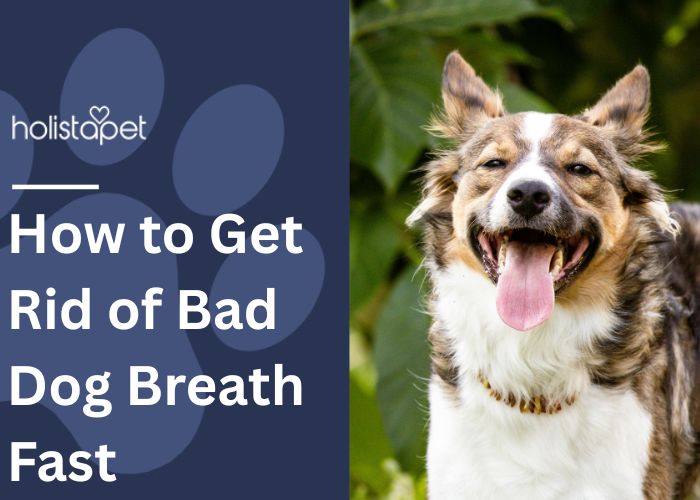Why is my dog so hyper? That's the question every owner asks when their pup zooms from room to room like a little tornado.
Some dogs just can't stop wagging, bouncing, and begging for action. These energy bursts can feel endless, but they usually have simple causes. With the right mix of activity, food, and guidance, even the wiggliest pup can learn to chill.
Understanding Canine Hyperactivity

Hyperactivity or Attention-Deficit Disorder in dogs means restless energy that doesn't fade quickly. A hyperactive pup may exhibit certain behaviors like jumping, barking, or running nonstop even after a walk. They often seem unable to focus or slow down.
This behavior goes beyond playfulness. Most instances involve excess energy, short attention spans, or overreactions to everyday sights and sounds. It can feel overwhelming, but it's quite common in active dogs.
Normal Puppy Energy vs. Excessive Hyperactivity
Puppies are like tiny rockets, bursting with excitement and zooming around the house. That's normal for their age sinceyoung dogs burn energy fast and want to play nonstop. Their antics usually ease as they grow.
Excessive hyperactivity looks different, though. If a dog shows constant restlessness, jumps on people, or can't concentrate, it may point to other issues. Diagnosed and true hyperactivity needs expert attention.
Common Reasons Dogs Act Hyper
Dogs can become hyper for many reasons, and not all are serious. Knowing the common triggers helps owners manage their pets' intense behaviors.
- Lack of Exercise and Mental Stimulation
- Poor Sleep or Inconsistent Routines
- Attention-Seeking and Learned Behaviors
- Dietary Triggers and Sugar Rushes
- Medical or Hormonal Causes That Can Increase Energy
Lack of Exercise and Mental Stimulation
An active dog cannot become bored. Without enough walks, access to toys and games, or work to do, hyperactive dogs often become uneasy. They may bark, chew, or jump to release extra energy.
Vets often suggest additional exercise and brain games to keep active pups engaged. Daily walks, training sessions, or sports can help their body and mind work together. You'll notice that a tired pup is usually a chill pup.
Poor Sleep or Inconsistent Routines
Dogs thrive on structure, and poor sleep can make them jittery. A puppy or adult canine that doesn't rest enough may bark too much or pace the house. Lack of sleep often adds to pent-up energy.
An inconsistent schedule also keeps pups on edge. Feeding, walks, and playtime should happen at steady times. A predictable pattern helps them relax and feel at ease on a daily basis.
Attention-Seeking and Learned Behaviors
Some other dogs may become hyper because they know it gets a reaction. Jumping, barking, or zooming often earns attention, even if it's negative. Over time, they repeat these behaviors because they've learned it works.
Owners may also reward the hyper actions without realizing it. Giving snacks or affection when the dog misbehaves reinforces the habit. Teaching proper behaviors instead helps shift the dynamic.
Dietary Triggers and Sugar Rushes
If your dog's diet is high in sugar or certain additives, it may cause energy spikes that leave them uneasy. Some pups also react to specific ingredients, showing more activity than usual.
Balanced nutrition is the answer. Switching to food with steady nutrients helps avoid sudden bursts of extra energy. In most situations, better food choices lead to quieter dogs.
Medical or Hormonal Causes That Can Increase Energy
Hyperactive behavior can sometimes connect to medical or hormonal issues. Dogs with swelling, thyroid shifts, or other body changes may have more pent-up energy. These cases are less common but still possible.
When a dog continues to appear overly hyper despite additional exercise, regular training, and a proper diet, it may be time to talk with a veterinarian. They can determine if hidden factors are to blame.
Why Is My Dog So Hyper All of a Sudden?
A dog that was once chill may seem agitated if something shifts at home. Loud noises, new people, moving houses, or sudden events often spark bursts of energy. Pets may show anxious behaviors, pace, or bark more. Most pups quiet down once their life returns to normal and they feel secure again.
Why Does My Dog Get Hyper After Eating?
Some dogs get a rush of energy right after meals. Certain ingredients in food can interact with the system and spark sudden bursts that leave pets racing around. Sugar or processed fillers are common triggers.
Food sensitivities may also cause stomach troubles that lead to jumpy behavior. Choosing a healthy diet with steady nutrients helps avoid spikes. In many cases, better food choices keep dogs peaceful after eating.
Are Some Dogs Naturally More Hyper?
Yes, some breeds have higher energy levels built into their nature. These dogs often need more action and work to stay satisfied. Without outlets, they may become anxious or destructive in the house. Owners of these dogs benefit from extra activity and training to help deal with all that high energy.
Most Hyperactive Dog Breeds Known for High Energy
Some breeds carry energy that feels nonstop, no matter how much action they get. Without enough outlets, they quickly become uneasy.
- Border Collies. Famous for focus, stamina, and herding drive.
- Jack Russell Terriers. Small bodies with endless energy bursts.
- Siberian Huskies. Bred for pulling sleds across long distances.
- Belgian Malinois. Strong working dogs that crave jobs.
- Labrador Retrievers. Playful companions with steady activity needs.
How To Calm a Hyper Dog Safely
Easing a hyper dog starts with simple daily habits. Small changes in their routine can make a big difference in their energy levels.
- Exercise and Playtime (Physical Outlets for Energy)
- Training and Enrichment Activities (Mental Stimulation)
- Creating a Calm Environment (Safe Spaces & Routines)
Exercise and Playtime (Physical Outlets for Energy)
A hyper dog often just needs more exercise. Long walks, runs, or fetch games use up energy that builds up during the day. Dog sports like agility or herding give active breeds a job to perform. Even short sessions in the yard can help. Tired pups usually relax faster and stay mellow indoors.
Training and Enrichment Activities (Mental Stimulation)
Mental work can tire out a hyper dog as much as running does. Teaching tricks, practicing "sit," or using clicker training keeps their mind sharp. Enrichment games add fun while working the brain. Puzzle toys, hide-and-seek with treats, or scent-based sessions keep dogs engaged. When the mind stays busy, extra energy often fades more quickly.
Creating a Calm Environment (Safe Spaces & Routines)
A serene setting helps hyper dogs slow down. A safe space, like a crate, soft bed, or quiet corner, gives them somewhere to rest. This spot should feel positive, not like punishment.
Schedules also matter. Feeding, walks, and play at the same times each day create predictability. With structure, many dogs feel more secure and less uneasy in the house.
Calming Remedies for Overly Energetic Dogs

Natural calming remedies can also help take the edge off while keeping your pet safe and comfortable. Many options come from herbs, gentle boosters, and wellness products made just for canines.
- Chamomile. Known for its soothing effects and often used in calming treats.
- Valerian Root. A natural option that may ease restlessness.
- Passionflower. Gentle support that can encourage relaxation.
- L-theanine. Found in green tea, often added to soothing chews for dogs.
- CBD. Popular wellness option for easing hyperactive behaviors. Try Holistapet's CBD Calming Collection, which includes chews, oils, and capsules made with all-natural ingredients.
- Dog-Safe Melatonin. Promotes calm and helps regulate sleep cycles. Check out Holistapet Melatonin Soft Chews for a safe, tasty option.
When To See a Vet About Hyperactivity
There are times when a veterinarian should step in. If a dog shows a sudden change or can't settle no matter what, medical issues may be the cause. A vet can help determine if hormones, swelling, or other factors affect energy levels. Professional guidance gives owners peace of mind and helps pets feel better.
Signs Your Dog's Energy May Be a Medical Issue
Sometimes hyper behavior signals something more than extra energy. When unusual signs appear, it's best to check with a veterinarian.
- Sudden Change in Behavior. A chill dog that suddenly becomes fidgety.
- Constant Restlessness. Pacing or unable to settle even after exercise.
- Aggression. Snapping, growling, or acting aggressively without reason.
- Discomfort or Soreness. Limping, stiffness, or signs of aches, along with hyper behavior.
- Stomach Troubles. Queasiness or repeated upset stomach paired with excessive energy.
FAQs – Hyper Dogs Explained
Why does my dog get hyper at night?
Some dogs act hyper at night because they still have energy to burn. If they didn’t get enough exercise or play during the day, the extra energy often shows up before bedtime. Hunger or changes in schedule can also keep them up.
Can diet changes calm down a hyper dog?
Yes, dietary changes can help soothe a hyper dog. A balanced diet with steady nutrients supports focus and mellow behavior. Switching to food with better ingredients often benefits pups on a daily basis. In many cases, reducing sugar and poor-quality fillers makes energy levels more stable.
Do puppies grow out of hyperactivity?
Most puppies grow calmer as they get older. Over time, their body and mind develop, and they learn to settle more easily. Daily exercise, training, and stable patterns help speed the process. While some breeds stay active, many puppies show less restless behavior as they mature into adult dogs.
What is the best way to train a very hyper dog?
The best way to train a hyper dog is to combine physical activity with mental challenges. Long walks, play sessions, and dog sports help use up excessive energy before training begins. Use short, simple commands like "sit" and reward with treats or praise. Clicker training and fun tricks keep them engaged.
Final Thoughts – Managing Canine Hyperactivity for a Happier Pet
Hyper dogs may feel overwhelming, but most cases improve with steady schedules, more exercise, and training. A balanced diet and soothing outlets also play a big role in helping them settle. Every pup needs guidance and patience to deal with that excess energy.
For natural support, Holistapet offers soothing chews, oils, and treats that fit easily into a daily routine. With care and consistency, pet parents can enjoy chiller, happier pups.


 CBD Oil for Dogs - Fast Acting
CBD Oil for Dogs - Fast Acting
 Chicken Flavored CBD Oil For Dogs - Easy Dose
Chicken Flavored CBD Oil For Dogs - Easy Dose
 Salmon Flavored CBD Oil For Dogs - Highly Rated
Salmon Flavored CBD Oil For Dogs - Highly Rated
 CBG Oil for Dogs and Cats - Loved by Thousands
CBG Oil for Dogs and Cats - Loved by Thousands





Leave a comment
All comments are moderated before being published.
This site is protected by hCaptcha and the hCaptcha Privacy Policy and Terms of Service apply.